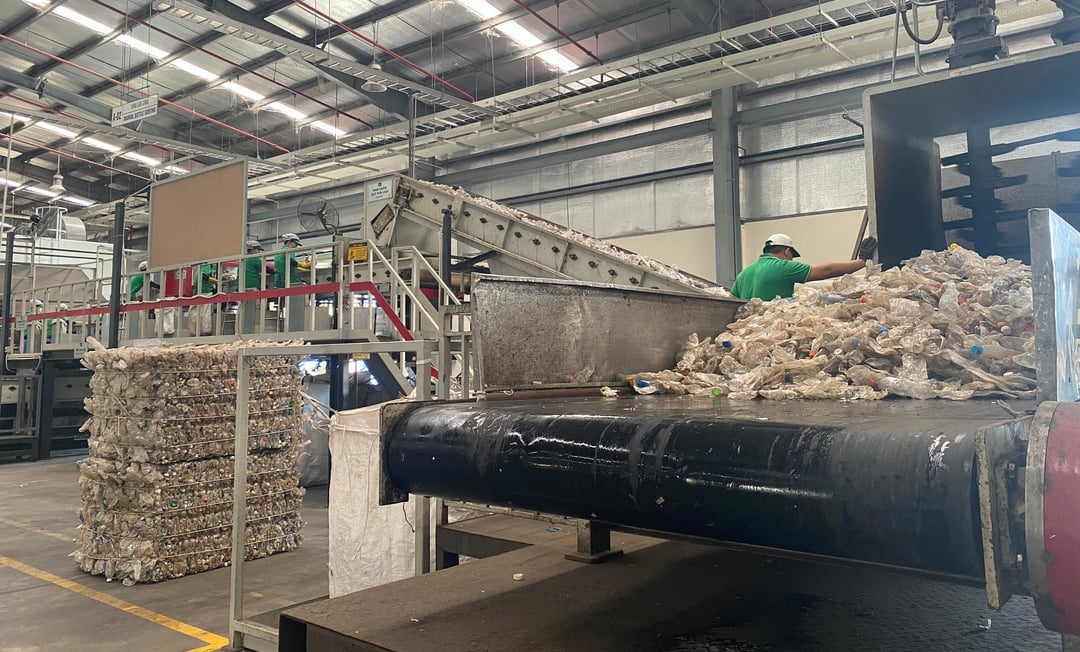November 20, 2025 | 13:24 GMT +7
November 20, 2025 | 13:24 GMT +7
Hotline: 0913.378.918
November 20, 2025 | 13:24 GMT +7
Hotline: 0913.378.918

The Ministry of Natural Resources and Environment is drafting the recycling cost norms.
The document sent on May 16, signed by 14 associations, includes the following:
Transparency Food Association, Ho Chi Minh City Food and Food Association, Vietnam Association of Seafood Exporters and Producers, Vietnam Dairy Association, High-Quality Vietnamese Goods Enterprise Association, Beer and Wine Association - Vietnam Beverage, Vietnam Textile and Apparel Association, American Business Association in Vietnam, Vietnam Timber and Forest Product Association, Vietnam Tea Association, Vietnam Motorcycle Manufacturers Association, Vietnam Automobile Manufacturers Association, Vietnam Plastics Association, Vietnam Association of Pesticides Manufacturing and Trading Enterprises.
According to the associations, the draft of the recycling cost norm has many unreasonably high norms because the value of recovered products has not been deducted according to the circular economy principle, and the data has many shortcomings.
Besides, the norm of recycling costs in the draft is many times higher than the countries' average level. References used in the draft omitted studies with lower norms.
In the notes attached to the draft, the recycling cost norm is calculated as the average value between two results: A proposal by experts from the International Finance Corporation (IFC), the International Fund for Conservation of Nature and the United Nations. (WWF) and proposed by the Vietnam Waste Recycling Association. However, these two proposals have a significant gap in the costs involved.
The proposed formula for calculating recycling cost norms ignores the profit factor of businesses that recycle from recycled materials, according to the 14 associations mentioned above. The construction of high norms can lead to the risk of causing price increases for many products and goods on the market, making it difficult for workers in the industry and consumers.
Committed to supporting the Ministry of Natural Resources and Environment in its efforts to protect the environment and promoting the recycling of products and packaging to promote the development of a green economy and a circular economy in Vietnam. The association made some recommendations.
Regarding the extended liability of manufacturers, the association group proposes that in the first two years (2024 and 2025), the regulatory body should focus on enforcement guidelines, not yet impose penalties, and only collect underpayment if the enterprise declares insufficiently or incorrectly, except for the case of deliberately failing to declare or deliberately cheating.
Extended manufacturer liability in Vietnam is a very new policy. Currently, many Asian countries have not yet applied for the compulsory application. Implementing thousands of types of packaging and products is very complicated, requiring detailed instructions.
In addition, many types of packaging and products in our market do not have recycling technology or recyclers, so businesses cannot take the initiative in solutions. The 14 associations said that immediately applying sanctions with very high fines will cause difficulties and affect production for companies.
Also, the drafting team of the draft law studies and considers allowing businesses to combine self-recycling and paying for recycling support in the same year instead of being forced to choose one of the two methods.
The reality in Vietnam shows that researching recycling solutions suitable to our country's conditions can take a long time to experiment. During the trial period, it was not even possible to determine the amount recycled.
Therefore, associations propose preferential policies for environmentally friendly packaging or recycled materials. This will encourage businesses to use recycled materials in packaging, increase resource efficiency, reduce dependence on raw materials in production, create output for the recycling industry, and help promote the development of the recycling industry in the current context.
Finally, the 14 associations proposed clearly defining recycling responsibilities for parts manufacturers, importers, or brand holders. The associations also suggested that the Ministry of Natural Resources and Environment consider removing the export limit and specifying clearly that packaging with no recycling solution should be calculated according to the waste treatment or recycling obligation.
According to Decision No. 252/QD-BTNMT, the National EPR Council has the main task of advising and assisting the Minister of Natural Resources and Environment in managing, supervising, and supporting the implementation of product recycling responsibility and responsibility for collecting and treating waste of manufacturers and importers following the law. Simultaneously, advise and help the Minister manage and use financial contributions to support the recycling of products and packages and the collection and treatment of waste of manufacturers and importers.
Translated by Ha Phuc

(VAN) Applying modern technology is helping environmental monitoring and oversight of management quality.

(VAN) Viet Nam’s economic losses could reach 12–14.5% of GDP annually by 2050 if no climate-response measures are implemented.

(VAN) Initial calculations suggest that blue carbon initiatives could reduce CO2 emissions by approximately 3 million tons in Viet Nam by 2035.
/2025/11/19/4020-1-172955_773.jpg)
(VAN) The Emission Reductions Payment Agreement in the North Central Region (ERPA) has generated positive impacts across the highland areas of Nghe An.

(VAN) On November 18, Deputy Prime Minister Tran Hong Ha chaired the 22nd session of the National Steering Committee on Anti-IUU Fishing.

(VAN) Prime Minister Pham Minh Chinh has issued an official dispatch directing focused response efforts and the swift remediation of damage caused by recent floods in the Central region.

(VAN) Deputy Minister Nguyen Thi Phuong Hoa calls for prioritizing the livelihoods of coastal residents, particularly those impacted by marine economic development projects.